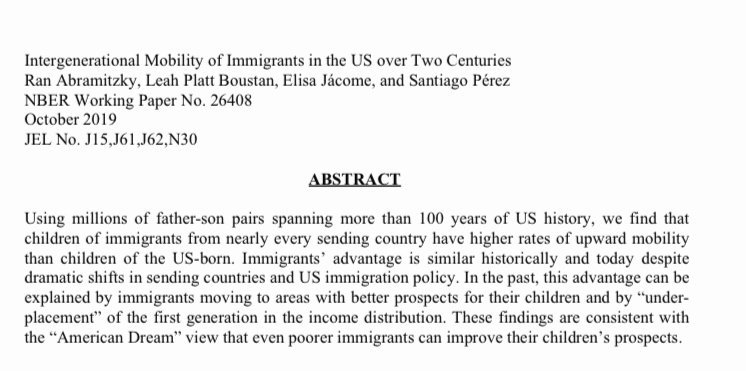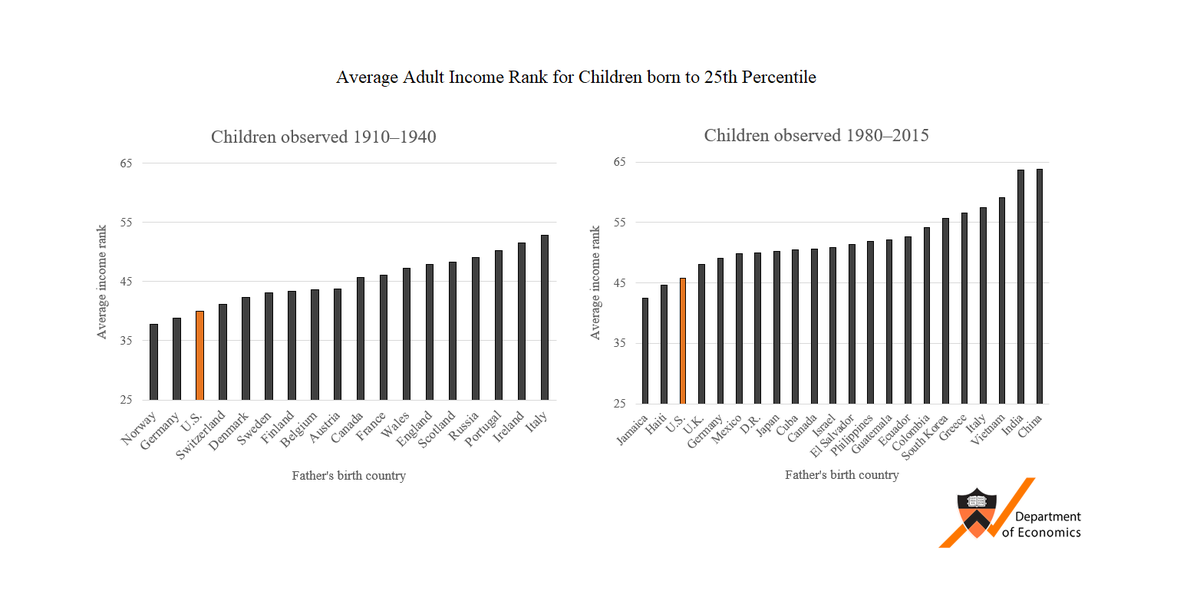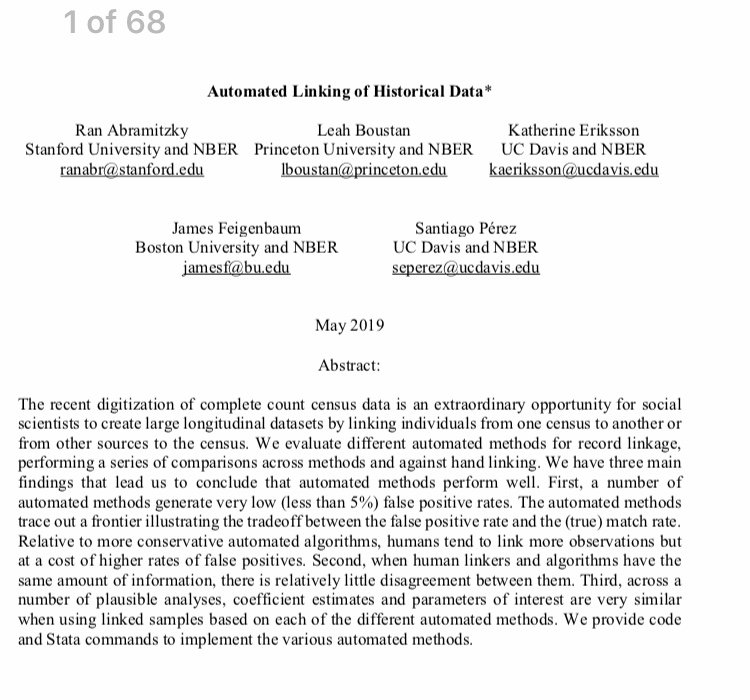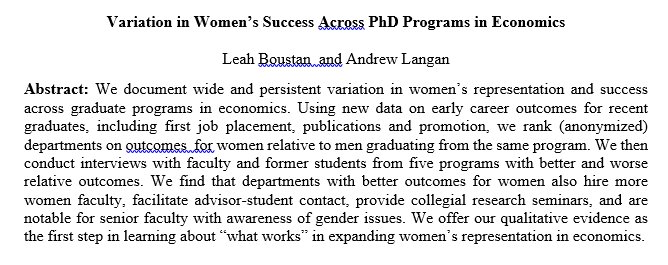
Excited to share research with you that I have been working on since grad school 😳
Question: what happened to the sons of slaveholders who lost wealth (sometimes tremendous fortunes) after the Civil War? Did sons rebound & join elite, or did wealth loss transmit to next gen?
Question: what happened to the sons of slaveholders who lost wealth (sometimes tremendous fortunes) after the Civil War? Did sons rebound & join elite, or did wealth loss transmit to next gen?
Here’s a link to the paper and abstract.
It’s joint work with @K_A_Eriksson and Philipp Ager.
nber.org/papers/w25700?…
It’s joint work with @K_A_Eriksson and Philipp Ager.
nber.org/papers/w25700?…
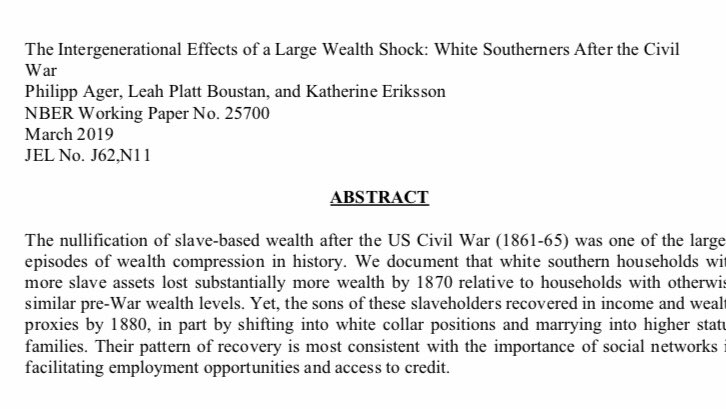
Old consensus among historians (back to Woodward) is that Civil War was “major rupture” to southern elite, that new wealth in South came from new families. This view was questioned by Wiener, Billings, etc but with small samples in specific locations
We have everrrrrrrrything!
Complete 1860 Census
Complete 1860 slave schedule (thanks @snaidunl!)
1870 wealth for fathers
1880 and 1900 wealth proxies for sons
Even some Georgia tax records in 1880
Complete 1860 Census
Complete 1860 slave schedule (thanks @snaidunl!)
1870 wealth for fathers
1880 and 1900 wealth proxies for sons
Even some Georgia tax records in 1880
Bottom line: we find that fathers with more 1860 slave wealth lost more by 1870 than similarly-wealthy southern households. BUT SONS BOUNCE BACK!
Here’s the paper in two graphs.
Slaveholder surname = name with above median slave ownership in county.
Most slaveholders > 75th percentile of 1860 wealth distribution
Fathers with slaveholder surname have LESS WEALTH by 1870 than equally wealthy counterparts - above 75th p
Slaveholder surname = name with above median slave ownership in county.
Most slaveholders > 75th percentile of 1860 wealth distribution
Fathers with slaveholder surname have LESS WEALTH by 1870 than equally wealthy counterparts - above 75th p

But sons with slaveholder surnames catch up or surpass sons from similarly wealthy households by 1880 

Son bounce back similar when you look at wealth proxy in 1900, income proxy in 1880, or individual wealth data from GA tax records.
Slaveholder sons also marry wives from wealthier backgrounds (using a method pioneered by @DanielePaserman and Olivetti)
Slaveholder sons also marry wives from wealthier backgrounds (using a method pioneered by @DanielePaserman and Olivetti)
Even the sons of wealthy families in the path of Sherman’s March or Sherman’s Field Order 15 (which confiscated plantations on the coast temporarily) bounced back - see also @jamesfeigenbaum work on Sherman
So, within South, slaveholding families lost wealth temporarily (around 15% more than comparison) but regained wealth and status quickly.
Compared to North, southern losses persisted (somewhat) by 2nd gen, but probably due to productivity declines rather than wealth transfer
Compared to North, southern losses persisted (somewhat) by 2nd gen, but probably due to productivity declines rather than wealth transfer
This paper adds another data point to our understanding of intergenerational wealth transmission. We rarely have a chance to study unanticipated shocks to family wealth and follow kids to middle age.
Our conclusion: it’s not the resources here, it’s the social connections
Our conclusion: it’s not the resources here, it’s the social connections
@threadreaderapp unroll
• • •
Missing some Tweet in this thread? You can try to
force a refresh


